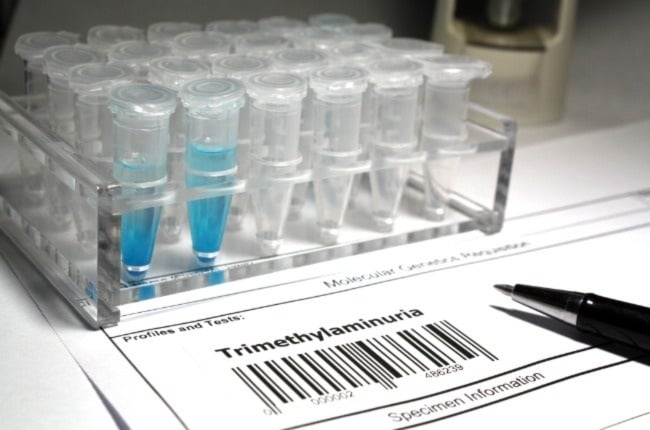
Thato* was 20 when he first noticed an unpleasant smell, not unlike faecal matter, around him.
At first he thought it was coming from other people, but he soon noticed the odour followed him everywhere.
The odour changed from smelling like poo to smelling fishy and he realised the smell was coming from his body.
Eventually, the student from Cape Town (26) was diagnosed with trimethylaminuria (TMAU), a rare disorder also known as fish odour syndrome, which causes an unpleasant, fishy smell.
The University of Cape Town student tells YOU his story:
“I first noticed the smell while studying in the computer labs at varsity. It smelt like faecal matter. I knew it wasn’t in my head because students sitting around me started moving to other seats. The smell was coming from me and my friends began noticing it too.
I began showering twice before I left res to go to campus. When that didn’t work, I researched possible causes, but for some reason I didn’t find anything online. I didn’t know what was wrong with me.
I went to the campus student wellness center, where I underwent a variety of tests. The doctor couldn't find anything wrong and referred me to a psychologist.
The symptoms were getting worse and people would react to the smell in class and on public transport.
I stopped going out and made the time to shower between lectures. If there were video recordings available of lectures, I would watch those online rather than attend them in person. I also stopped going to church and watched sermons online.
READ MORE | A rare genetic disorder left me with diabetes, scoliosis, fatigue and chronic pain
The psychologist I was referred to thought it was all in my mind and I questioned my sanity.
I was fortunate enough to have a friend who cared enough to bring up the issue and as awkward as that conversation was it meant a lot to me.
At the time I was bodybuilding and my diet consisted of mostly protein and caffeine. I didn't know it then but this made the symptoms much worse. The odour changed from a faecal smell to a fishy smell and it became stronger.
People could smell it from the corridor outside my flat. It was humiliating and I tried to isolate myself even more.
I started researching my symptoms again and finally I discovered TMAU. I returned to my doctor armed with this new information and he confirmed that I was most likely suffering from TMAU.
However, I couldn’t take the official TMAU test as it costs more than R10 000 and I learned the only place in the country that does the test is the Northwest University Centre for Human Metabolomics.
For most TMAU sufferers the test is a expensive, especially as TMAU limits your economic participation and job opportunities. Many sufferers work from home, which sometimes pays less than regular office job.
The test also doesn’t offer any treatment methods different to what is already online and you still have to do the trial-and-error method to find a diet suitable for you, along with the appropriate supplements to take to ease the symptoms.
I discovered that TMAU is caused by gene mutation, possible liver damage and bacterial overgrowth, which increases the amount of TMA - the the fish-smelling compound - produced in the gut.
I was happy to finally have a diagnosis but devastated to discover there is no cure for it.
Thankfully, I found several support groups and finally I could speak to people who understood what I was going through.
READ MORE | I went blind the same year I found out I was pregnant and my kids helped me embrace life again
Life as a TMAU sufferer can be lonely. You lose friends because you’re constantly isolated and you can't bring yourself to go into public settings. Even when you do have friends it’s hard to talk to them about your daily struggles as they don't understand.
As there is no cure for TMAU, understanding the condition and treating it is a process of trial and error. I had to learn which foods to avoid, when to find substitutes for food and drinks, what supplements to take, and trying different brands of toothpaste and deodorants.
I drink at least three litres of water a day so I regularly pass a sizable portion of the TMA compound through urine. I substitute sugar drinks and coffee for probiotic drinks such as water keffir and kombucha.
Over time, these probiotic drinks increase the levels of good bacteria in the gut, which slows the production of TMA, and there’s less TMA for the liver to metabolise.
These drinks also help one's bowels become more regular, so there's less time for the TMA to be absorbed. I also take vitamin B2 to assist my liver.
In the mornings I run to sweat out any excess TMA in my body.
I wash myself with low pH soaps and use low pH lotion to help neutralise any TMA released through my pores.
Telling people about my condition can be difficult because you can never know the response you're going to get.
Most people I've opened up to have been compassionate. On campus, I was allowed to write exams in an isolated room. I was also offered psychological support and I will forever be grateful to the university and my lecturers for their understanding and compassion.
TMAU is often associated with women, but regardless of your gender people are stigmatised because of the misconception that sufferers are unhygienic.
I’m now an ambassador for TMAU which I believe will bring about more compassion and understanding for sufferers.
Greater awareness in countries like the UK has led to the condition being recognised in their public health system and there are hospitals with dedicated doctors, nutritionists, psychologists and weekly support groups for the condition.
I believe there are still many out there in SA who suffer from this condition without knowing what is causing it.”
Trimethylaminuria (TMAU) is an uncommon condition that causes an unpleasant, fishy smell. It's also called "fish odour syndrome". In TMAU, the body is unable to turn a strong-smelling chemical called trimethylamine – produced in the gut when bacteria break down certain foods – into a different chemical that doesn't smell. This means TMAU builds up in the body and gets into bodily fluids like sweat.
Sometimes it's caused by faulty genes that a person inherits from their parents, but this isn't always the case. There's currently no cure, but there are things that can help. TMAU symptoms can be present from birth, but they may not start until later in life, often around puberty.
The only symptom is an unpleasant smell, typically of rotting fish – although it can be described as smelling like other things – that can affect the: breath, sweat, pee and vaginal fluids. The smell may be constant or may come and go. Things that can make it worse include sweating, stress, certain foods such as fish, eggs and beans and periods.
There's some things that might help with the smell like avoiding cows' milk, seafood and shellfish, eggs, beans, peanuts, liver, kidney and supplements containing lecithin.
- It can also be helpful to avoid strenuous exercise, try gentle exercises that don't make you sweat as much
- try to find ways to relax – stress can make your symptoms worse
- wash your skin with slightly acidic soap or shampoo – look for products with a pH of 5.5 to 6.5, use anti-perspirant
- wash your clothes frequently
Your doctor may recommend short courses of antibiotics – this can help reduce the amount of trimethylamine produced in your gut and taking certain supplements – such as charcoal or riboflavin (vitamin B2).
*Not his real name
Sources: nhs.uk, rarediseases.co.za




 Publications
Publications
 Partners
Partners





















